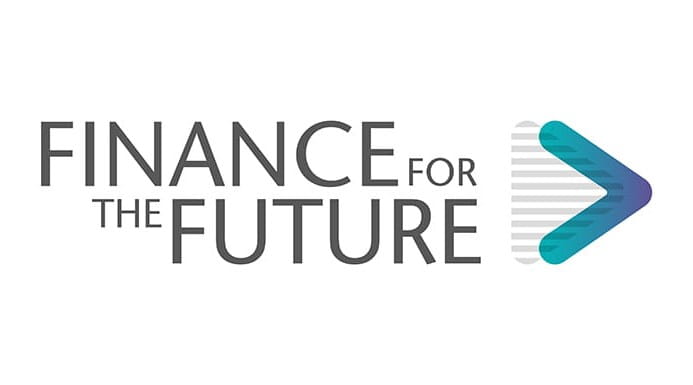In their paper for the Bank of International Settlements (BIS), authors Yener Altunbas, Leonardo Gambacorta, Alessio Reghezza and Giulio Velliscig foundGender diversity in the workplace could mitigate climate change.
The authors investigated the relationship between the percentage of women appointed as managers and firms’ carbon emissions.
The paper covered 1,951 listed companies in 24 industrialised economies over the period 2009-2019 and concluded that a 1% increase in the number of female managers within a firm leads to a 0.5% decrease in a firm’s CO2 emissions.
The research also found that gender diversity at managerial level has stronger mitigating effects on climate change, if women are also well-represented in political institutions and civil society organizations. Following the Paris Agreement, the authors found firms with greater gender balance reduced their CO2 output by 5%, as women acted more efficiently to curb emissions.
A question of personality
The paper relies on previous research from 1987 and 1991 that determined that women make different decisions based on their gender.
‘...women tend to be more compassionate, caring and inequality-averse than males as a result of their roles in raising children and caring for the household,’ the paper states.
‘As such, they might be more likely to take into account the overall well-being of society without necessarily focusing narrowly on the interest of shareholders. For these reasons, women’s livelihoods tend to be more climate-sensitive than men’s.’
Therefore women’s ‘social sensitivity, in conjunction with cultural and social practices’, could lead to them demonstrating stronger pro-environmental behaviour than their male peers.
‘As a result, women may be more inclined to solve the problem of climate change, if effectively included in the environmental decision-making,’ say the authors.
They use this argument to suggest that it is not the board of directors that are the most efficient limiters on climate change decisions, but those who implement the decisions.
‘We argue that, since managers have discretion in selecting the best strategy to achieve a firm’s strategic objectives, a more gender-diverse management is more suitable to deal with environmental threats as women have a natural predisposition to counter climate change.’
Board diversity benefits
While the thrust of their argument is for more female managers throughout an organisation, the authors also measured control of board gender diversity.
“Board gender diversity enhances awareness of environmental issues as female directors may bring to bear the pro-environmental traits of female personalities, as posited by gender socialization theory and social role theory,” they wrote.
Interestingly, when women were more present in senior political or civic roles in countries, they enabled their female counterparts in corporations to make better decisions for the climate, found the research.
This is either because of women’s “green” attitude, which may be crucial for successful environmental policymaking, or because of the general effect that more gender equality at the political level may have on the way people value the environment.
‘...Having more female ministers helps promote gender equality and spread environmental awareness, which eases female managers’ task in achieving better environmental results at the corporate level in terms of reducing CO2 emissions,’ the paper wrote.
Suggestions for policymakers
The paper uses algebraic reasoning to evidence its findings, as well as statistical analysis, in a technically deep dive of its data.
It suggests from its findings that firms foster the inclusion of female managers in top management teams and also include green values in recruiting profile criteria.
Policies that envisage a larger percentage of women at the management level not only have an impact on gender diversity imbalances but allow for a more efficient fulfilment of the Paris Agreement recommendations, it says.
“Policymakers can “kill two birds with one stone”: more active engagement of women in the decision-making process may help achieve environmental objectives,” the authors write.
Where the research leads
Given the positive findings in the firms that they surveyed and their results for their hypothesis that more women managers have a negative effect on CO2 emissions, the authors want other researchers to use their conclusions for further research.
This includes studying whether the benefit of having more female managers on climate emissions for firms outweigh the transition risks.
In the context of emissions reductions, low-carbon investments such as low-carbon technologies are indeed more capital-intensive, which makes investment risk and funding costs more significant,’ write the authors, ‘and yield longer-term results than their high-carbon alternatives,’ they say, quoting previous research.
“For these reasons, investigating the financial performance implications for firms of female managers’ pro-environmental views could disentangle the drivers of a firm’s environmental commitment, 22 contributing to a promising but scant strand of literature.”
Existing research links polluting firm stocks to investment returns on the stock exchange, says the paper, ‘but further investigation is needed on the implications of carbon emissions for different profiles of corporate financial performance, such as firm value, risk and profitability, in order to disentangle the reasons underlying the deployment of strategies for reducing carbon emissions.’
Read the full paper: Does gender diversity in the workplace mitigate climate change?
COP26: acting together
Find inspiration, information and practical resources to support the goals of the UN Climate Change Conference in Glasgow and explore why it represents a critical time for the profession.




